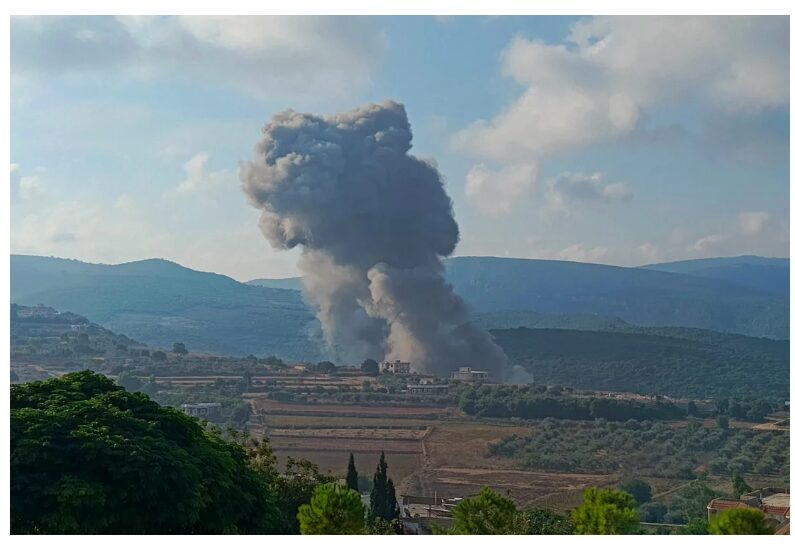Hezbollah, the Lebanese militant group, confirmed on Sunday that it had successfully executed the “first phase” of a significant attack against Israel, which it claimed targeted multiple military sites deep within Israeli territory. This action comes in retaliation for the assassination of Fuad Shukr, a senior Hezbollah commander, by Israel in Beirut last month. The group’s leader, Hassan Nasrallah, asserted that the operation was a success, dismissing Israel’s claims of thwarting the attack through preemptive strikes.
The Attack and Israeli Response
Hezbollah launched over 320 Katyusha rockets and drones aimed at 11 Israeli military targets, marking one of the most substantial exchanges of fire since hostilities between the two sides escalated in parallel with Israel’s ongoing war against Hamas in Gaza. The Israeli military responded with a series of preemptive airstrikes, claiming to have destroyed thousands of rocket launchers in southern Lebanon that were poised to target northern and central Israel. Despite these efforts, Hezbollah maintains that its objectives for the day were accomplished.
Israel’s preemptive strikes involved around 100 fighter jets targeting more than 40 Hezbollah launch sites. The Israeli Defense Forces (IDF) reported that their actions averted a much larger attack, but the absence of casualties on the Israeli side and the continuation of Hezbollah’s operations suggest that the conflict is far from over. Israeli Prime Minister Benjamin Netanyahu emphasized that Israel would continue to defend itself, signaling that further military actions could be imminent.
UN and Global Reactions
The United Nations, along with several global powers, has expressed deep concern over the escalation between Israel and Hezbollah. The UN has issued warnings about the potential for this localized conflict to spiral into a broader regional war. The situation is further complicated by the involvement of other Iranian-backed groups, such as Hamas and the Houthis, who have voiced support for Hezbollah’s actions and have threatened their own retaliations against Israel.
The U.S. administration, under President Joe Biden, has been closely monitoring the situation, reiterating its support for Israel’s right to defend itself while simultaneously calling for regional stability. The possibility of this conflict drawing in more actors from across the Middle East, including Iran, remains a significant concern, as tensions continue to rise.
A Prelude to a Larger War?
The recent flare-up between Israel and Hezbollah could be seen as a potential prelude to a broader conflict involving multiple Arab nations. While Hezbollah’s attacks are currently localized, the rhetoric from other groups aligned with the “Axis of Resistance” suggests a coordinated effort to challenge Israeli military dominance in the region. The ongoing war in Gaza, combined with these new hostilities on Israel’s northern front, has led to speculations that the Arab world might be gearing up for a more unified and extensive confrontation against Israel.
However, it is also important to consider the geopolitical realities and the severe consequences that a full-scale war would entail. Both sides are aware that any miscalculation could lead to a wider regional conflict, drawing in global powers and potentially destabilizing the Middle East further. The coming days will be crucial in determining whether this escalation will remain contained or if it will ignite a more extensive warfront across the region.
While Hezbollah’s recent attack has significantly heightened tensions, the path forward remains uncertain. The international community’s efforts to mediate and the strategic decisions by both Israel and Hezbollah will play pivotal roles in shaping the outcome of this potentially explosive situation.







